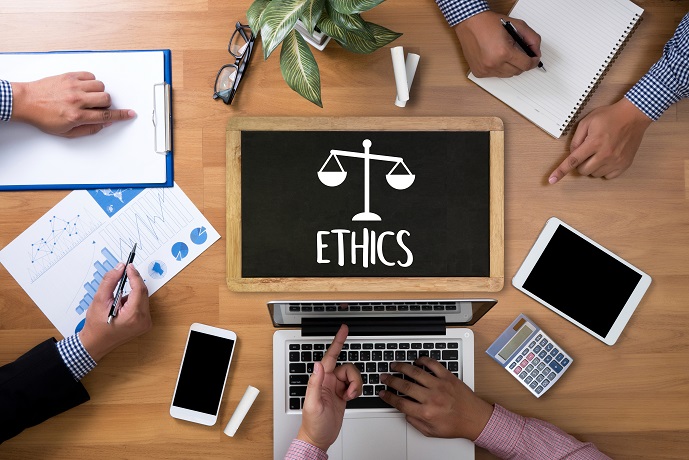If nothing else, the end of the Donald Trump presidency brought a renewed awareness to the field of legal ethics. As more than sixty lawsuits filled up court dockets around the country, we were treated to a front-row seat on the difference between what lawyers declare in a press conference and how they make that same argument in court.
While many of the lawyers who fought for Trump’s election lies may find their professional reputation in tatters, it remains to be seen if they will face any kind of legal reckoning. The legal profession is supposed to have ethical standards. But can it still make such claims if Trump’s greatest enablers are allowed to walk away from these sham trials and blatantly frivolous lawsuits without sanction?
Trump Lawyers Flout Ethics Codes
Last summer, U.S. District Court Judge Linda Parker took great pains to point out in her ruling the difference between “cable-news lawyering” and the real practice of law. She expressed that there are a number of areas such as television and social media in which conjecture and speculation are permissible. She added, however, that these types of statements are not allowed in a court of law.
Her ruling shed light on how Trump lawyer Sidney Powell and her team submitted affidavits rife with unfounded accusations to push claims that would have thrown out millions of votes from Michigan. Parker wrote, “this case was never about fraud—it was about undermining the People’s faith in our democracy and debasing the judicial process to do so.”
While Trump has yet to suffer any legal consequences (although he does have a number of cases pending), this is not entirely unusual. He’s accustomed to having others, his lawyers, for example, get their hands dirty instead. Yet Trump is not bound by any ethical code of conduct. He is free to push whatever baseless theories his heart desires. On the other hand, this freedom from constraint does not apply to his lawyers, especially in a court of law.
Legal Ethics Rules
Every state in the county has legal ethics rules for attorneys that are based on standards from the American Bar Association. For instance, lawyers must have a basis in law for asserting a claim that isn’t frivolous in court. In addition, there are rules proscribing lawyers from making false statements to third parties and undertaking deceitful conduct.
Judges can punish or impose sanctions on lawyers who violate ethics rules in a case. In addition, there are regulatory bodies to enforce ethics rules guided by state judiciaries. And these bodies have the power to suspend an attorney or revoke his or her license.
Disciplining Lawyers Still a Remote Possibility
Rudy Giuliani’s law license, for instance, has been suspended in both New York and the District of Columbia due to his role in promoting Trump’s false election-fraud claims in the courtroom. Once revered as “America’s mayor,” Giuliani’s allegiance to Trump has resulted in a Shakespearean-like fall from grace.
Nevertheless, legal experts were surprised by this turn of events and claim that this kind of disciplinary action is still unusual, particularly in politically charged disputes. They add that Trump’s other lawyers are unlikely to face similar disciplinary action, regardless of their complicity in Trump’s dubious lawsuits.
Because investigators work with limited resources, they tend to concentrate on more egregious infractions such as attorneys who steal from clients. Moreover, they are also leery of getting involved in cases dealing with politics.
Watergate as Precedent for Legal Ethics and Politics
Unfortunately, there is a strong precedent for lawyers running afoul of legal ethics rules while advancing a political agenda. Out of 69 individuals implicated in the Watergate scandal, 21 were attorneys. The list includes Richard Nixon himself, two attorneys general, an assistant attorney general, two White House counsels, and over a dozen high-profile members of the Nixon administration.
In response to Watergate, the legal profession overhauled its rules of professional responsibility by mandating that students take ethics courses during law school while adding ethics to bar exams. It also started requiring lawyers to participate in continuing legal education programs.
Clearly, these steps do not deter many lawyers who rise to powerful positions. While our country managed to survive the assault brought by Trump and his lawyers this time, it may not be so lucky in the future. For the continued health of our democracy, the lawyers involved in Trump’s effort to overturn our election must not be permitted to undermine it.
Indeed, they must be rejected by the legal profession as a whole. If these people are welcomed back into high-profile law firms to continue to ply their trade, then the machinery of the law will remain as broken as the ethics of Trump and Trumpism.
Reference
https://www.abajournal.com/magazine/article/1965_1974_watergate_and_the_rise_of_legal_ethics
https://www.theatlantic.com/ideas/archive/2021/08/trumps-lawyers-kraken/619915/




